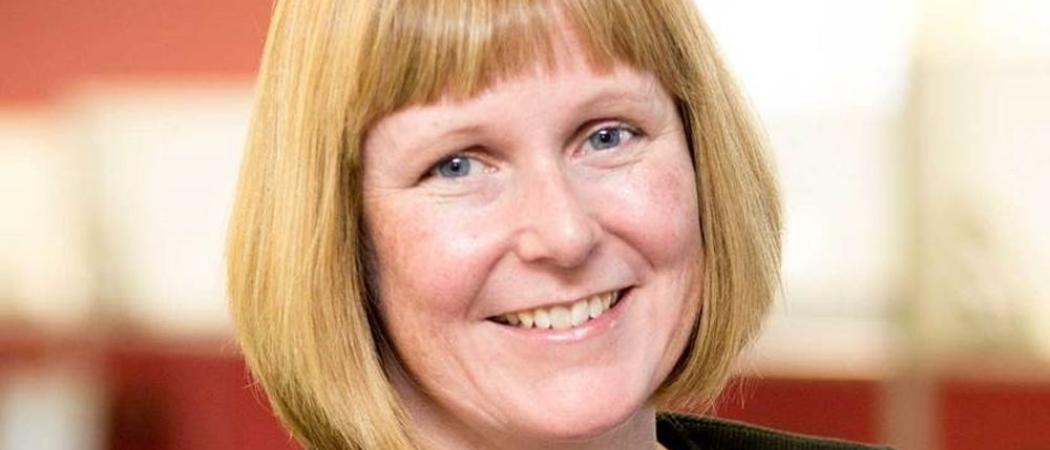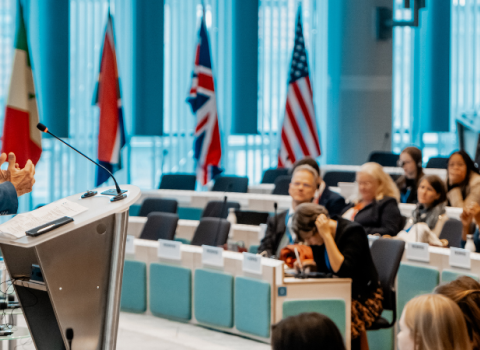Rosie Hicks, head of the Australian Research Data Commons shares her thoughts on open science. Europe and Australia should make sure their data sharing infrastructures can interoperate, she says

Rosie Hicks. Photo: www.envisagemyfuture.com
As the EU is grapples with the complexities of getting national infrastructures to interoperate and persuading scientists to open up access to their data on the European Open Science Cloud (EOSC), Rosie Hicks, recently-appointed CEO of Australia’s parallel project came to Brussels to swap notes.
Hicks leads the Australian Research Data Commons (ARDC), a government-backed project established last year to pull together industry, universities and the public sector to coordinate the sharing and open publication of research data. In common with EOSC, ARDC aims to knit together existing infrastructures to provide a single point of access to any data, regardless of where it is held. “I would say ARDC is about nurturing the system, rather than actually doing it itself,” Hicks told Science|Business.
Hicks was in town for a string of informal meetings with MEPs and commission officials to exchange views on the work of ARDC and EOSC. The goal is not to create a formal link between the two, but to try to make sure they remain open and interoperable, she said.
“When we’re talking about data repositories from a research output perspective, it doesn’t matter where the data is,” Hicks said. European and Australian systems need to be interoperable to allow maximum reuse of data. “If we’re not building our systems with that at the front of our mind, then we’re actually missing the point,” said Hicks.
Hicks is familiar with European research policy, having served on the European Commission’s expert group on e-research data infrastructures in Horizon 2020. And though she has lived in Australia for more than 20 years, she is from southwest London.
Consensus on data sharing
One of the main attempts to tackle the challenge of interoperability at an international level is the Research Data Alliance (RDA), which was set up in 2013 to encourage international data sharing across research disciplines. RDA was founded by the EU, Australia and the US, and now consists of around 8,000 people in virtually every country in the world.
EOSC and RDA are closely linked, Hicks noted. “The Research Data Alliance was deliberately set up to be international, you cannot have a regional agreement,” she said.
Even given its continental size, fostering easy access to data across Australia is less complex than doing so across Europe. Not only must EOSC establish technical standards, it needs to engender a consensus on data policy across the member states.
In addition, different countries and research groups across Europe are starting from different levels in trying to create a cohesive whole.
“What I’ve seen is actually some pretty rapid progress in Europe, considering the complexity and the requirement for consensus, and the time that this has been a focused activity,” said Hicks. “I think they’ve made great strides in progress to date.”
She acknowledges ARDC has an advantage in working at a single country level. “I think we’re ahead at the moment in having the vehicle to undertake the national perspective,” she said. Meanwhile, the EU is still in the throes of developing an overarching framework.
The ARDC was created in July 2018 through the merger of the Australian National Data Service, which focused on bringing together institutions for data sharing; the Research Data Service, which handled technical aspects of data sharing; and National eResearch Collaboration Tools and Resources, which provided online infrastructure to connect Australian universities.
Rapid publication
In addition to the technical obstacles that must be overcome, the premise of making data from publicly-funded research freely available to any user is more controversial than it sounds. Brussels has seen some messy political skirmishes over the matter, especially where pubic research grants get mixed-up with funding from industrial players anxious to keep a grip on whatever competitive edge the research might give them.
At the end of last year, MEPs tried to amend a new EU law on open data, to establish an “open by default” rule for all data from research paid for by the taxpayer. But academics worried about losing industrial funding, and businesses concerned about intellectual property pushed back. In February the final legal text settled on making such data “as open as possible, closed as necessary.”
In Australia, state governments are starting to go further than simply requiring open access publication as a condition of research grants. Increasingly, the rule is “not just that you’re going to publish this data, you’re going to publish it as soon as you have it,” Hicks said. “If you’re not doing it, why aren’t you doing it? [that’s] the tone of the conversation at the moment.”
This article was updated on 19 June to correct two typos: in two places, ARDC was referred to as "ADRC"





 A unique international forum for public research organisations and companies to connect their external engagement with strategic interests around their R&D system.
A unique international forum for public research organisations and companies to connect their external engagement with strategic interests around their R&D system.